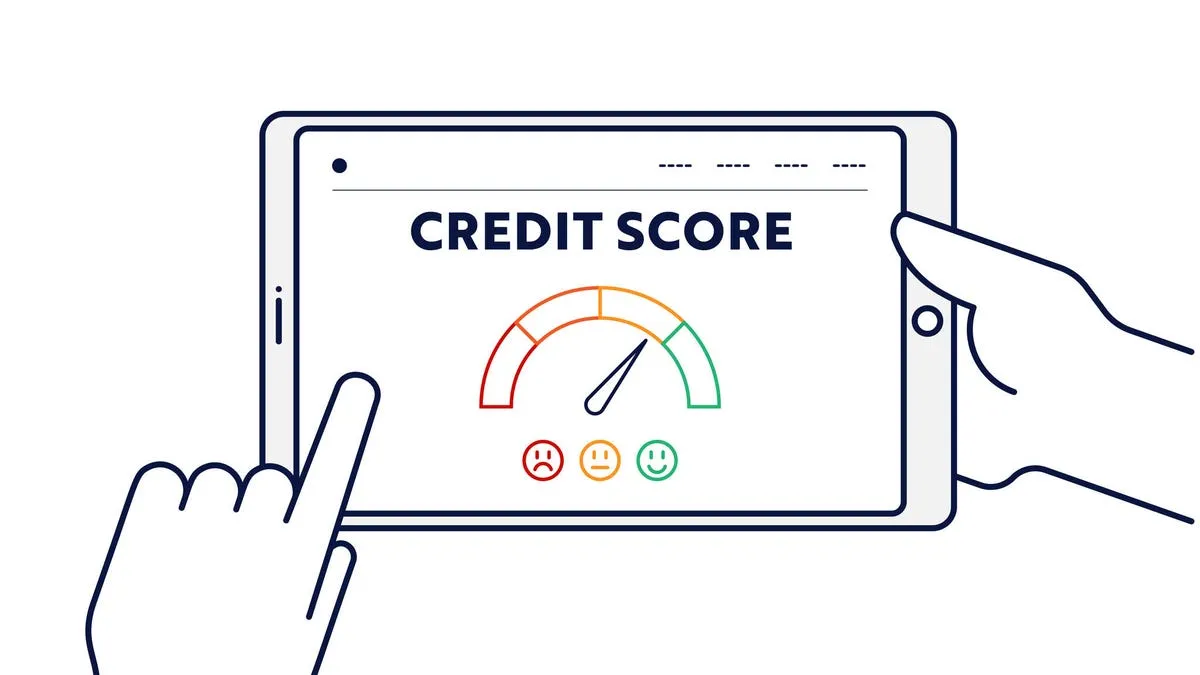A strong credit score is vital for accessing various financial products, such as mortgages and car loans. Knowing how long certain items stay on your credit report plays an essential role in understanding the overall effect of that item's presence - good or bad - on your overall standing, so having accurate information will help you understand what to expect from your report over time.
This blog post'll explore the standard timeframes associated with late payments and hard inquiries appearing on your three major credit reports: Equifax, TransUnion, and Experian.
Understanding How Credit Reports Work
A strong credit score is vital for accessing various financial products, such as mortgages and car loans. Knowing how long certain items stay on your credit report plays an essential role in understanding the overall effect of that item's presence - good or bad - on your overall standing, so having accurate information will help you understand what to expect from your report over time.
Regarding knowing how long something stays on your credit report, 3 main bureaus make up your FICO (Fair Isaac Corporation) credit score: Equifax, TransUnion, and Experian. Let’s look at the standard timeframes of late payments and hard inquiries appearing on these three major credit reports.
Late payments that are 30 days or more past due will stay on your report for up to 7 years, while those that are 60 days or more past due can remain up to 10 years. If a payment is only 15-29 days late, it will still show up with an R9 rating and remain for two full years after the date of occurrence.
The Different Types of Accounts that Appear on Your Credit Report
- Bank loans
- Credit card accounts
- Mortgages
- Installment loans
- Student loans
- Home equity lines of credit (HELOCs)
- Auto/vehicle loans
- Medical debt or collections accounts
- Credit inquiries from lenders and creditors
Bank Loans
Will appear on your report for up to 7 years from the date of last payment.
Credit Card Accounts: Will remain on your report for up to 10 years from the closure date or charge-off.
Mortgages
Generally, stay on your credit report for up to 10 years after you have paid off the loan in full.
Installment Loans: These loans will remain on your credit reports for up to seven years after the account is closed, regardless of when the payments were made.
Student Loans
Generally, this debt stays active until it’s completely paid off or discharged, and it can remain on your credit report for up to 10 years from the date of first delinquency.
Home Equity Lines of Credit (HELOCs)
These accounts will remain on your report for up to 10 years after the account is closed, regardless of when the payments were made.
Auto/Vehicle Loans
Your auto loan will be reported for the loan term until it’s paid off or discharged and can remain on your credit report for up to 10 years from the date of first delinquency.
Medical Debt or Collections Accounts
Medical debt may stay on your credit report longer than other types of debt since most medical providers don’t report it to credit bureaus unless you are severely delinquent. It can typically remain on a credit report for seven years from the first reported date.
Credit Inquiries from Lenders and Creditors
Any inquiry made on your credit report by a lender or creditor will remain for up to two years after that inquiry, but it’s important to note that they will only affect your score for one year.
Factors Determine the Length of Time an Account Appears on Your Credit Report
- The type of account
- When the account was opened and closed
- Whether payments were made on time or late
- If the account is still active
- If the account was paid in full
- If the credit issuer wrote off a balance as uncollectible
- If it's a medical debt or collection account
- If there are any inquiries made on your report by lenders or creditors
How to Check the Status of Your Accounts
One of the best ways to keep track of your credit report status is to check it regularly. Several options are available for checking your credit report, such as annualcreditreport.com, which provides one free credit report from each bureau every 12 months or requests a copy directly from the bureaus. Checking your local county clerk’s office can also provide insight into any financial issues you may have had that might still be on record.
These steps will help you stay informed and up-to-date with all the activity going on with your accounts:
1. Check Your Credit Report Regularly
Checking your credit reports consistently helps identify potential errors quickly and catch signs of identity theft. You can check each of your three credit reports for free once a year at annualcreditreport.com.
2. Monitor Your Credit Score
Keeping watch on your credit score is also important since it provides insight into the health of your accounts and indicates whether you’re using them responsibly or not.
3. Look for Unfamiliar Activity
It is important to be mindful of any suspicious activity that may appear as an unauthorized inquiry or account, which could signify identity theft. Contact your card issuer or financial institution immediately if you find anything unfamiliar so they can investigate further and protect your accounts from potential fraudsters.
4. Watch Out For Late Payments
Late payments stay on your credit report for a significant amount of time, so stay up-to-date with your payments.
5. Dispute Credit Report Errors
If you find any errors on your credit report, it is important to contact the respective bureaus toto dispute them and resolve them quickly. This will help ensure that your credit score remains accurate and up-to-date.
6. Continue Building Good Credit
Finally, make sure to keep up pt habits such as making payments, ts on time, and using the right amount of available credit to maintain attire.
FAQs
Q: How long do hard inquiries stay on my credit report?
A: Hard inquiries usually remain on your credit reports for 2 years from the date they were made. They typically only affect your score for 12 months before dropping off.
Q: How long does a bankruptcy stay on my credit report?
A: A Chapter 7 bankruptcy generally stays on your Equifax and TransUnion credit reports for 10 years and remains indefinitely on your Experian credit report.
Q: How long does a collection account stay on my credit report?
A: Collection accounts remain on your Equifax and TransUnion credit reports for 7 years from the date of first delinquency or the last activity associated with that particular account. They will typically drop off your Experian credit report after 6 years.
Conclusion
Your credit report is one of the most important factors in determining your access to financial products and services, as well as your ability to obtain better interest rates on loans and other types of financing. Understanding how long something stays on your credit report will help you make informed decisions about managing and protecting your finances. Keep an eye out for anything suspicious or unfamiliar - you should always be aware of any changes with the accounts listed on your credit reports. Finally, monitor your credit score and reports regularly to maintain a good financial standing!





